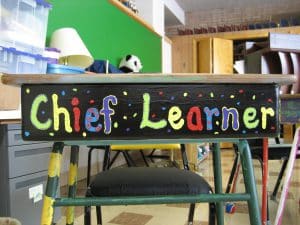Shifting from Delivery to Discovery Conference Education
So much of our commonplace practices and conventional wisdom about learning is wrong. Educators have been talking about Bloom’s Taxonomy, critical-thinking skills, executive functions of the brain and HOTS — higher-order thinking skills — for more than five decades. However, those foundational learning principles have not transferred to most adult education experiences.
Conference organizers still have a tremendous amount of work to do to involve adults in cognitive learning practices. We are stuck in legacy lecture and panel formats that are delivery-based. Instead we have to transition into the research-proven methods of discovery and inquiry, which result in better outcomes for participants.
We need to design learning experiences that involve learners in making meaning of the content, not just receiving information. We have to give them time to link that content to their own knowledge and experience. We have to give them the opportunity to test ideas of how to apply that content on the job.
Compare and contrast the current delivery system of education vs. the discovery system of education:
Current System of Education: Delivery
- Participants are expected to accept information via a 45-, 60- or 90-minute lecture, panel, video or from reading materials.
- The education experience is one-size-fits-all, impersonal and disconnected.
- The speaker is doing the majority of the thinking, sense-making and explaining — not the participant.
- We measure how well participants learned by evaluating their right and wrong answers on a test.
- The speaker does the step-by-step problem-solving and shares solutions. Participants then copy the solution.
Better System of Education: Discovery
- Participants uncover what the content means to them, not what it means to the expert.
- The participant is encouraged to assume more of the cognitive work in thinking about how to use the information, not the speaker.
- Understanding and sense-making result in new ideas and approaches, not just copying the speaker’s new ideas and approaches.
- The presenter measures the audience’s quality of thinking instead of just identifying right or wrong knowledge answers.
- The presenter directs the presentation based on the learners’ questions during the session.
Putting Discovery Into Practice
Download and distribute this PDF of revised Bloom’s Taxonomy Action Verbs from Azusa Pacific University to your speakers. Encourage speakers to build presentations around learning outcomes that use Levels 3 through 6, so participants practice higher-level critical-thinking skills. Here are two types of discovery activities that presenters can use to encourage participants to use higher-order thinking instead of just passively receiving content.
- Analogies — Participants are asked to compare the current topic to a different topic. Ask, How is this topic __________________ (fill in the blank with the topic the expert is presenting) like ________________________ (fill in the blank with a new topic.) Participants then proceed comparing how the two topics have similar attributes.
- Elaborate and evaluate various perspectives — Ask participants what could account for the expert’s point of view? Have them expand on a variety of other ways people could view this issue.
Adapted from Dave’s Forward Thinking column in PCMA’s Convene. Reprinted with permission of Convene, the magazine of the Professional Convention Management Association. ©2018
How much of your conference program is delivery vs. discovery? What obstacles might you encounter should you decide shift to more discovery based learning experiences?


